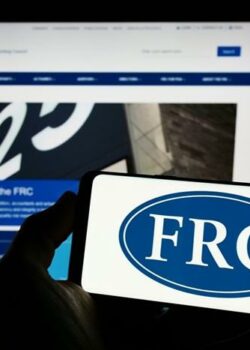The UK’s governance watchdog is being “too prescriptive” when it proposes that audit committees should be responsible for ESG reporting, according to the Institute of Directors.
The view comes in response to a consultation on a revised corporate governance code launch by the Financial Reporting Council in May.
The FRC says a new version of the code would give the audit committee a “new responsibility of monitoring the integrity of narrative reporting, including sustainability reporting, and for describing its work in this area in the annual report… .”
The IoD concludes the proposal is too rigid, saying in a statement this week that an “individual board might reasonably determine that a sustainability committee, an ESG committee or the board as a whole is the more appropriate mechanism through which to oversee these areas—especially if the audit committee is already overburdened.”
Roger Barker, director of policy and governance at the IoD, says the code should not be dictating how boards organise their work. “If too much of the board’s agenda is imposed upon it by regulators and other external actors, then lines of accountability will be blurred, and the board’s role will be reduced to that of a glorified compliance function.
“This is in nobody’s long-term interests and will reduce the capacity of UK companies to grow and compete.”
Barker’s belief echoes the IoD’s recent broader observation that many boards feel they have lost control of their own agendas as they become buried under a slew of regulatory demands and public expectations.
Standing in the way of control?
A report from the IoD last week, Are Boards Losing Control?, claims that a “cumulative impact” of a benign business environment, combined with pressure from policymakers, investors and other stakeholders, has many board members feeling they are reacting to events rather “setting their own direction”.
Barker said on the report’s launch: “Before moving ahead with any reforms, it is important for regulators to consider the cumulative impact of regulation on the ability of boards to apply their own judgement.”
Though he added that boards also need to “win back the trust of wider society”, through competence in governance and ethical conduct.
In response to the corporate governance code, the IoD says its members are “concerned” by the “substantial” volume of reporting and disclosures they now have to make.
However, the IoD welcomed the code’s approach to executive pay, where it seeks to establish greater transparency on “clawbacks” and malus.
The business world finds itself caught a squall of competing issues, hence the deluge of regulation and work on a new governance code. Disagreement is therefore guaranteed. However the FRC’s consultation works out, boards will likely need to evolve.





